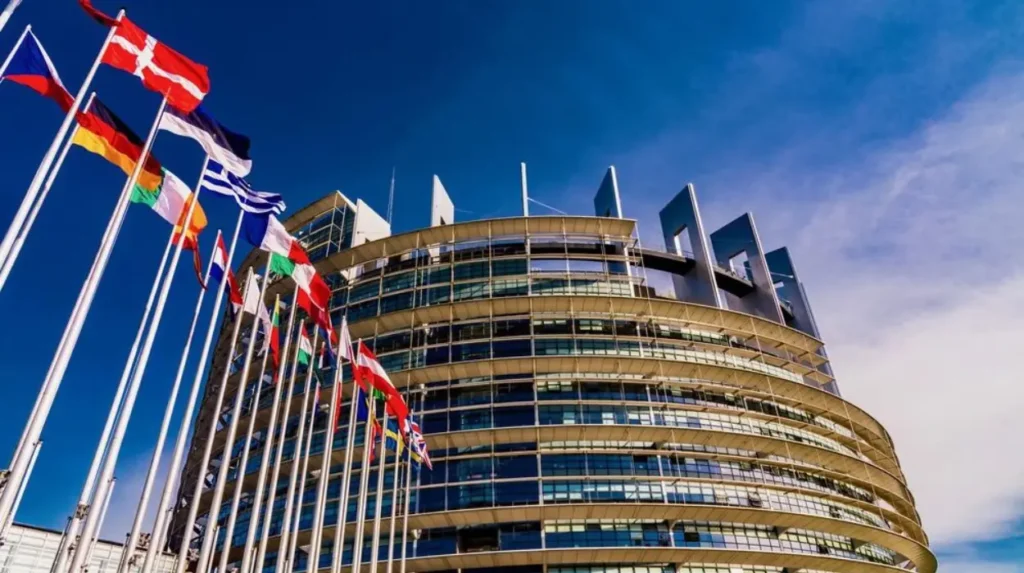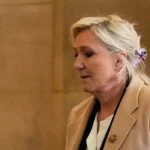Starting next week, the European Parliament will enforce significantly tighter rules restricting access to its premises for journalists, lobbyists, and diplomats. This move ends the long-standing tradition of relatively open access where holders of color-coded badges—for journalists, lobbyists, and diplomats—could freely roam the European Parliament’s Brussels and Strasbourg buildings. The new regulations require invitations signed by Members of the European Parliament (MEPs) to access many areas, particularly sensitive or peripheral buildings, aiming to enhance transparency, security, and public trust.
The European Parliament announced that these changes are part of a broader reform aligned with its commitment to transparency and accountability amid increasing scrutiny over the institution’s vulnerability to undue influence. The tightening follows earlier restrictions imposed in May 2025, which required lobbyists to activate badges at every visit and declare their purpose of attendance. However, the current measures extend these requirements to journalists and diplomats as well.
From Open Doors to Invitation-Only Access
Until now, a colored badge was all one needed to move freely through the European Parliament buildings. For instance, journalists wore white badges with a yellow “Press” stripe, lobbyists green badges, and diplomats orange badges. This system enabled informal encounters and facilitated spontaneous meetings with lawmakers in corridors, bars, or lounges.
With the new system, this semi-open access ends. For many parts of the Parliament, particularly peripheral buildings in Brussels and office areas in Strasbourg outside plenary sessions, only those with explicit invitations from MEPs will be allowed entry. The Parliament’s calendar system further restricts access during “white weeks”—downtime periods such as summer recess or Christmas breaks—when the buildings are meant to empty out. Access during these weeks will be strictly by invitation only.
A Parliament spokesperson affirmed,
“The changes introduced to the rules […] are part of a broader reform aligning with Parliament’s commitment to ensure transparency, accountability, and public trust.”
These reforms come against the backdrop of several European political scandals, including the high-profile ‘Qatargate’ affair, which exposed a cash-for-influence scheme shaking Brussels and prompted a push for stricter oversight on foreign lobbying.
Industry and Media Reactions: Trade-Offs Between Security and Openness
While the Parliament frames these measures as necessary for safeguarding the institution’s integrity, the professional communities affected have expressed frustration. Journalists and lobbyists view the restrictions as undermining their ability to perform their roles effectively.
Emma Brown, president of the Society of European Affairs Professionals (SEAP), representing the EU lobby industry, criticized the move, saying,
“Once again, actions are taken without consultation with the profession. A performative approach that adds little to real transparency while undermining trust. All of this could be avoided through constructive dialogue.”
Several observers see these restrictions as pushing the informal and influential business of deal-making outside official Parliament areas into bars, cafés, and restaurants in the surrounding Place Luxembourg district, where less oversight exists.
Similarly, journalists lament the erosion of access to vital informal sources and spontaneous interactions that underpin political reporting in Brussels. Some argue that genuine transparency is compromised when access is curtailed in the name of security, as information flow becomes more controlled and less immediate.
Transparency Efforts and the Lobbying Register
Despite access restrictions, the Parliament continues to advocate for public transparency through other mechanisms, notably the mandatory Transparency Register shared by the European Parliament, the Council of the European Union, and the European Commission. This online database publicly lists organizations engaged in lobbying activities to influence EU policymaking.
Registration is a prerequisite for lobbyists requesting Parliament access badges and participation in official hearings and informal parliamentary groups (intergroups). The system obliges Members of the European Parliament (MEPs) to publish information on their scheduled meetings with registered lobbyists or representatives of non-EU public authorities.
Measures also require MEPs responsible for reports to declare the sources of outside input and support received by informal groups, ensuring the public can track who seeks to influence parliamentary work. A European Parliament official explained, “These transparency initiatives are designed to balance the need for legitimate dialogue with the imperative of public accountability.”
Security Concerns Amid Rising Foreign Influence
The tightening of access reflects increasing concerns about foreign lobbying and covert influence in European institutions following several high-profile scandals. The ‘Qatargate’ probe, exposing allegations of cash-for-influence involving foreign lobbyists and officials, heightened institutional sensitivity to unregulated interactions inside Parliament.
Along with Qatargate, ongoing scrutiny involving lobbying by major global technology firms and diplomatic actors has prompted Parliament to reevaluate how it manages external access while protecting democratic processes. By requiring MEP invitations for visitors, Parliament aims to reduce unvetted and informal encounters that can facilitate undue influence.
Practical Implications for Brussels Political Scene
The regulatory changes challenge long-standing working habits in Brussels, where informal corridor conversations, bar meetups, and unexpected discussions play an outsized role in EU politics. Industry insiders forecast a shift in where and how lobbying and media coverage occur, with public spaces outside Parliament turning into new hotspots for deal-making and story gathering.
Nonetheless, Parliament officials maintain that these access limits are essential for safeguarding integrity. They argue that clearer parameters enhance public trust in the institution and its policymaking processes.
Looking Ahead: Balancing Transparency, Security, and Access
The European Parliament’s new restrictions illustrate the ongoing challenge democratic institutions face in balancing openness, transparency, and security amid evolving threats from opaque lobbying and foreign interference. While some stakeholders decry the restrictions as counterproductive or symbolic, others emphasize the necessity of reform in an era demanding higher accountability.
As Brussels adapts to this regulatory shift, continued dialogue between MEPs, journalists, lobbyists, and civil society will be crucial to finding workable solutions that maintain transparency without compromising institutional security or effective access.
The Parliament’s evolving framework also punctuates the broader European push for anti-corruption reforms and transparency mechanisms, underscoring the importance of proactive governance to deter improper influence while keeping democratic processes accessible and accountable.







